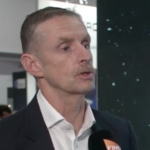Project AirSim is a new platform running on Microsoft Azure to safely build, train and test autonomous aircraft through high-fidelity simulation.
The software provides a rich set of tools that enables users to rapidly create custom machine learning capabilities.
Realistic sensor models, pre-trained neural networks, and extendable autonomy building blocks accelerate the training of aerial agents.
Years of research
Building on the foundation of years of research, Project AirSim has the unique ability to generate an unprecedented amount of simulated data needed to train machine learning models, using thousands of environments and billions of parameters.
Through the platform, AI models can run through millions of flights in seconds, learning how to react to countless variables much like they would in the physical world.
The resulting neural network model encodes how the vehicle perceives the world through its multiple sensor modalities.
Improved performance
This enables the user to rapidly fine tune autonomy blocks and achieve good performance for various aerial robotic tasks, such as visual odometry, positioning and precision landing.
Air Sim gives customers the launch pad they need to build, test and validate uncrewed aviation solutions and deploy them safely.
“Autonomous systems will transform many industries and enable many aerial scenarios, from the last-mile delivery of goods in congested cities to the inspection of downed power lines from 1,000 miles away,” said Gurdeep Pall, Microsoft corporate vice president for Business Incubations in Technology & Research.
“But first we must safely train these systems in a realistic, virtualised world. Project AirSim is a critical tool that lets us bridge the world of bits and the world of atoms, and it shows the power of the industrial metaverse – the virtual worlds where businesses will build, test and hone solutions and then bring them into the real world.”
Subscribe to the FINN weekly newsletter

